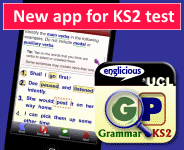Metaphor: Introduction
Metaphor is often thought of as something that is confined to literary texts, but as we shall see, this really isn't the case.
Everyday language is full of metaphor, and it is actually quite difficult to use language without it!
Let's look at an example - the metaphor of LIFE IS A JOURNEY. (In linguistics, the standard way to show metaphor is by using capital letters). In this metaphor, the abstract concept of 'life' is understood as a concrete, physical 'journey'.
This generates sentences such as:
- We're moving forward with the plans.
- It feels like my life is going so quickly.
- They've taken a big step backwards.
- I'm at the middle-aged crossroads.
Of course, there is no physical movement being described in each of these. There are no 'middle-aged crossroads' to stop at, and plans do not physically 'move forwards'. Metaphors such as these are useful in language as they provide a way of talking about something abstract and intangible (e.g. 'life') as something concrete and tangible (e.g. 'a journey').
Examples
Here are some examples of different metaphors:
TIME IS MONEY
- I've spent far too much time on this.
- I've invested a lot of time here.
GOOD IS UP / DOWN IS BAD
- Things are looking up.
- I feel really down today.
More examples
LIFE IS A CONTAINER
- I've had a full life.
- Her life is crammed with activities.
- Get the most out of life.
- Live your life to the fullest.
POLITICS IS WAR
- The Labour Party are battling hard for votes.
- This policy is making victims out of the most disadvantaged.
- She shot down all of his arguments.
Could you think of any other examples for these categories of metaphors?
Welcome!

Englicious is totally free for everyone to use!
But in exchange, we ask that you register for an account on our site.
If you’ve already registered, you can log in straight away.
Since this is your first visit today, you can see this page by clicking the button below.
- Printer-friendly version
- Log in to view or leave comments

